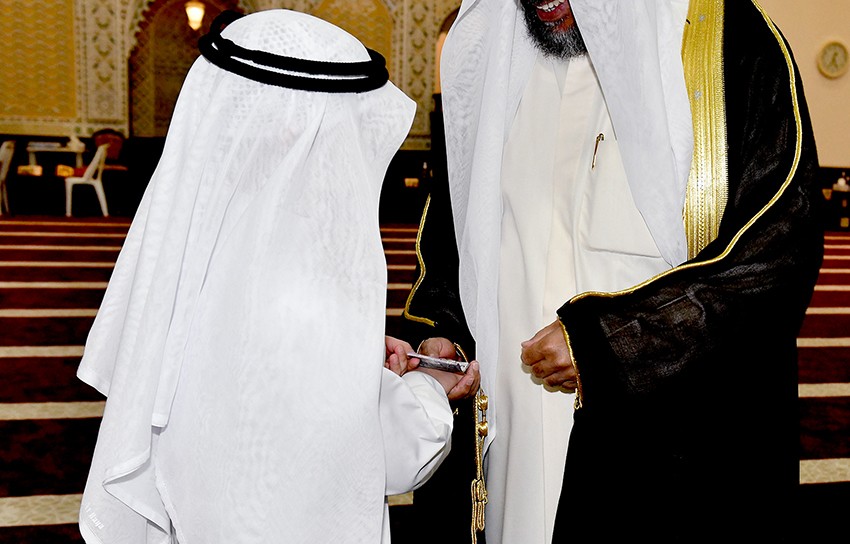10/07/2022
10/07/2022
KUWAIT CITY, July 9: In the past, Kuwaiti people used to mark Eid Al-Adha in a remarkably simple and spontaneous manner, mainly including offering Udhya (sacrifice) and people's anticipation of the return of pilgrims from Makkah in Saudi Arabia, according to two heritage scholars.

Eid manifestations and festivities had special and distinguished features as people used to brace themselves some time ahead of this holy occasion by performing rifle and sword shows and reciting passionate poems, they said.
Speaking to KUNA, Dr. Yaqoub Al-Ghunaim said past Eid aspects were so simple and attractive that they reflected the religious and social heritage and tradition, with the festival having been called "Meat Eid", referring to livestock-slaughtering as recommended by the Prophet Muhammad (pbup). Due to hard living conditions at that time, only four or five out of 15-20 houses at the same area used to offer Udhya. Rich people would open diwaniyas (Kuwaiti gatherings) to welcome well-wishers, including neighbors and friends, and invite them to lunch on the occasion of the festival, he said.
In the early 1990s, Kuwaiti people used to flock to the Amir's palace on the first day of Eid Al-Adha in order to congratulate him and his royal family on the occasion of Eid.
Furthermore, children used to come together in front of their houses, wearing new clothes and singing happy songs in joyous and festive atmospheres, the Kuwaiti scholar pointed out. Dinner parties serving rice and meat were also thrown by the families of pilgrims returning from Makkah, with well-wishers having been given various gifts like date, prayer mats and miswak (a tooth-cleaning stick), he added. For his part, Saleh Al-Mesbah, another heritage scholar, the social customs and popular manifestations of Eid Al-Adha in the past primarily revolved around sacrifices (livestock-slaughtering) and the return of pilgrims from Makkah. People used to offer Udhya by slaughtering sheep immediately following congregational Eid prayers or during any of Eid days in presence of all family members, especially children.
Unlike Eid Al-Fitr, when fish meals are offered after the holy month of Ramadhan, Eid Al-Adha dishes chiefly contain rice and meat, Al-Mesbah remembered. Children would be given ediyah (cash money) by senior people like fathers and uncles and even some family friends, a tradition that has been common for long year, he said, noting that children would spend this money on buying sweet and toys. As for the return of pilgrims, he remarked that the people of Kuwait inherited some customs from their ancestors, such as placing a red, green or white flag over the house as a sign that the head of the family was on the pilgrimage journey. (KUNA)


